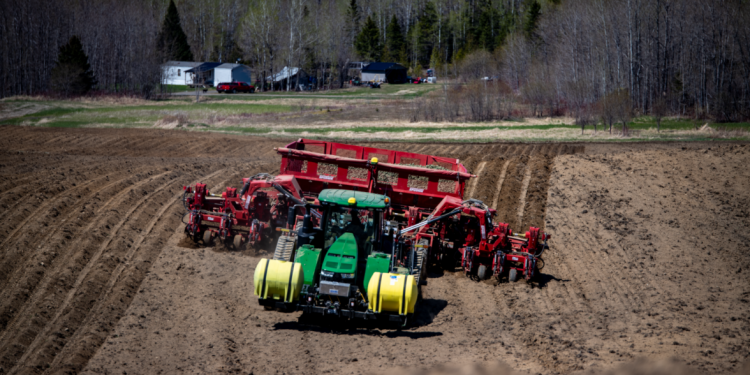An important trend in the Dutch arable farming sector is the further development of precision agriculture. Precision farming techniques such as GPS, soil scans and site-specific application of fertilizers and crop protection allow you to use production resources more efficiently and accurately. In theory this provides advantages, but our research shows that entrepreneurs do not always experience this in practice. For example, according to entrepreneurs, communication between different machines is not yet optimal and the return on investment in precision agriculture is not entirely clear. Read more about the experiences of arable farmers and what you can learn from them.
Working efficiently and accurately are the biggest advantages of precision farming
The benefits of precision farming? According to 64% of our surveyed customers, this is more efficient use of crop protection agents. 44% say they work more accurately and 42% say they use fertilizers more efficiently. Thanks to precision agriculture, entrepreneurs can therefore save on costs for crop protection, fertilization and working hours. This is thanks to the efficient and accurate use of precision farming.”According to entrepreneurs, efficient and precise working are the biggest advantages of precision farming.”

In trade magazines, increasing crop yields is often mentioned as an advantage. This is not apparent from our research. But 25% of the entrepreneurs see higher crop yield as an advantage.
The future of precision agriculture lies with site-specific application
About 85% of the companies surveyed use steering systems that automatically control agricultural machinery based on GPS. This makes the arable farming sector ready for the next step in the further development of precision agriculture within the sector. This is also evident from our research. The arable farms surveyed want to use more techniques that apply nutrients and crop protection in a variable manner within the next five years. This way you get customization per plant.

Entrepreneurs mainly want to apply crop protection on a site-specific basis. In 5 years’ time, 47% of the surveyed customers want to use this technique. Compared to 2020, the use of this technique will increase by 28%. The site-specific application of nitrogen fertilization is also increasing. By 2025, 35% of arable farmers want to apply this technique to the company.
The role of data is increasing in the arable farming chain
Participants in the questionnaire are willing to share their data with other parties in the chain. Only 15% of the companies surveyed consider lack of clarity about ownership of business data to be a disadvantage of precision farming (see figure 2). Also, only 9% of the respondents indicate that they first want to know who owns business data before continuing with precision farming.
According to the entrepreneurs, data over 5 years plays a greater role in making decisions about cultivation (32%) and advice on cultivation, also referred to as cultivation support (30%). If more arable farms want to share data, this will change the relationship between arable farmers and chain parties.
Precision agriculture should bring convenience to entrepreneurs
Farmers often indicate that equipment from different suppliers does not match. The translation to specific circumstances is also lacking and the results are often not directly measurable. As a result, there is doubt whether the investments in money and time will pay off. For a successful application of precision agriculture on the farm, it is important to look at what a technique brings in terms of convenience and benefits. Isn’t that so? Then it might pay off to wait to invest until the technology is further developed. Some tips:
- Look at the total investment cost. The costs of precision agriculture are not only the purchase, but also demand a lot from the entrepreneur in terms of time and knowledge development.
- Precision farming gives you a flow of data (such as soil scans and yield measurements). This data can provide valuable insights. But the processing and interpretation of this data takes time and money. By working together with independent advisors you get the most out of the data.
- Invest together with other arable farmers in research into the possibilities of precision agriculture. Such practical research into local circumstances helps in the assessment of whether a technique benefits a company. This can be done with study groups, sector organizations or with knowledge partners.
- Exploiting economies of scale by sharing data within a region. For example, by sharing data from weather stations with other arable farms.
Want to read more experiences of entrepreneurs? Then view the full research .







